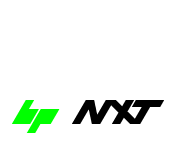-
Communication Design
Communication design is the practice of planning and shaping the content of a message as well as its form and delivery. It is about touching people through the transmission of an idea. Communication designers craft effective and expressive ways to share these ideas with the recipient.
-
Conceptual Design
Conceptual design is a type of art which explores new ideas that may potentially be functional. The concept is more important in the process than straightforward function. It is distinguished from design in general by not necessarily being functional and from conceptual art by closely relating to function.
Projects
Tensor Seequartier Bregenz Electr.Oper Kranensee FRANZ VON HAHN -
Creative Coding
Creative coding describes the use of software and tools to create digital artworks, such as real life art installations, interactive video, large-scale public projections and so on. It is an artistic, playful approach to programming, where the code is considered the artistic material.
Projects
Olympus Photography Playground: SWARM Nike Lunar Epic Launch Grelle Forelle Heineken Green Space SONIC CUBES -
Creative Engineering
Creative Engineering is the fusion of art and engineering. Engineering skills, such as physical computing, electronics, mechanics and programming, are used to create aesthetic and functional artworks and installations.
Projects
Electr.Oper Grelle Forelle Prater Unser Tensor Olympus Photography Playground: SWARM -
Data Visualization
Data Visualization is the study of the visual representation of data or information. It is intended to present complex information clearly.These visual representations, also referred to as Infographics, allow viewers to process data quickly and discover patterns and trends more easily.
Projects
Electr.Oper -
Development
Web and app development range from simple client-side websites or applications to complex server-side data-driven services. In web development all common web programming languages and content management systems based on state-of-the-art frameworks like django are employed. Agile development and the DRY principle play an important role.
Projects
Grelle Forelle Tensor Electr.Oper
-
Generative Art
Generative art refers to artworks which have fully or partly been created with the use of an autonomous (non-human) system and which are determined by algorithms. They usually appear in conventional forms of art, such as poems or animated visuals, and can either operate autonomously or incorporate inputs from a user or the environment.
Projects
PRATERSAUNA 2.0 Telekom Austria: net culture lab Levi's Unbuttoned Olympus Photography Playground: SWARM Draw a Ring -
Information Architecture
Information architecture is the art and science of organizing and labeling data, such as websites or books. The goal is to structure the content and create curated systems of information rather than visually displaying the data. In a next step, these systems can be used to support usability.
-
Interaction Design
Interaction design, often referred to as IxD, combines human - computer interaction and software development. It is about shaping interactive digital products, environments, systems and services. Key qualities of interaction design products are usability, utility, satisfaction and communicative qualities.
Projects
Grelle Forelle SAP: HOUSE OF CARDS + KICKER -
Motion Design / Animation
Motion Design sets images in motion through the use of animation or film techniques. The output is video content created with methods of 2D / 3D animation, motion graphics, stop motion and filming.
Projects
Heineken Green Space Tensor Kranensee Intel Visual Life: Cannes Film Festival Levi's Unbuttoned Tour -
Product Design
Product design refers to the process of creating a product that is intended to be sold. It includes activities such as creating the look, deciding on the mechanical architecture or selecting materials of the product. Product design ideally ensures efficient and reliable functionality and adequacy of the product for the targeted consumer group.
Projects
Tensor Voronoi lamp FRANZ VON HAHN -
Real-Time Computer Graphics
Real-time computer graphics are 2D or 3D images and videos produced in real time, using a GPU. Real-time output enables interactivity and allows to create generative content.
Projects
Grelle Forelle Tensor Kranensee Nike Lunar Epic Launch SONIC CUBES
-
Service Design
Service Design refers to the application of established design processes and skills to the development of services. It seeks to improve the user experience and efficiency of the provided service. The approach involves a multi-disciplinary team who works with stakeholders and end-users throughout the process.
-
Set Design
Set Design is the art of creating the ideal setup to enhance the stage performance. Complex setups and installations integrating different technologies like projection mapping, LED walls, multi-channel video-systems, lights and lasers expand the conventional area of stage design to a unique experience for the audience.
Projects
Levi's Unbuttoned Tour URBAN ART FORMS 2011 LIVID Tiles Heineken Green Space Electr.Oper -
Speculative Design
The Speculative Design process emerges from a provocative starting point that has been established, rather than from a specific problem. It focuses on creative thought and conceptual development. The result is an evolution of fluctuating iteration and reflection using designed objects to provoke questions and stimulate discussion.
Projects
EXPO 2017: IM.PULS -
Visual Event Design
Visual Event Design refers to the process of creating an ambience for different events by using visuals and lighting. These visuals represent a brand, message or theme and usually combine modern event lighting with experimental lighting and projection technologies, such as projection mapping or LED setups.
Projects
Tensor Kranensee Nike Lunar Epic Launch Levi's Unbuttoned Intel Visual Life: CES
